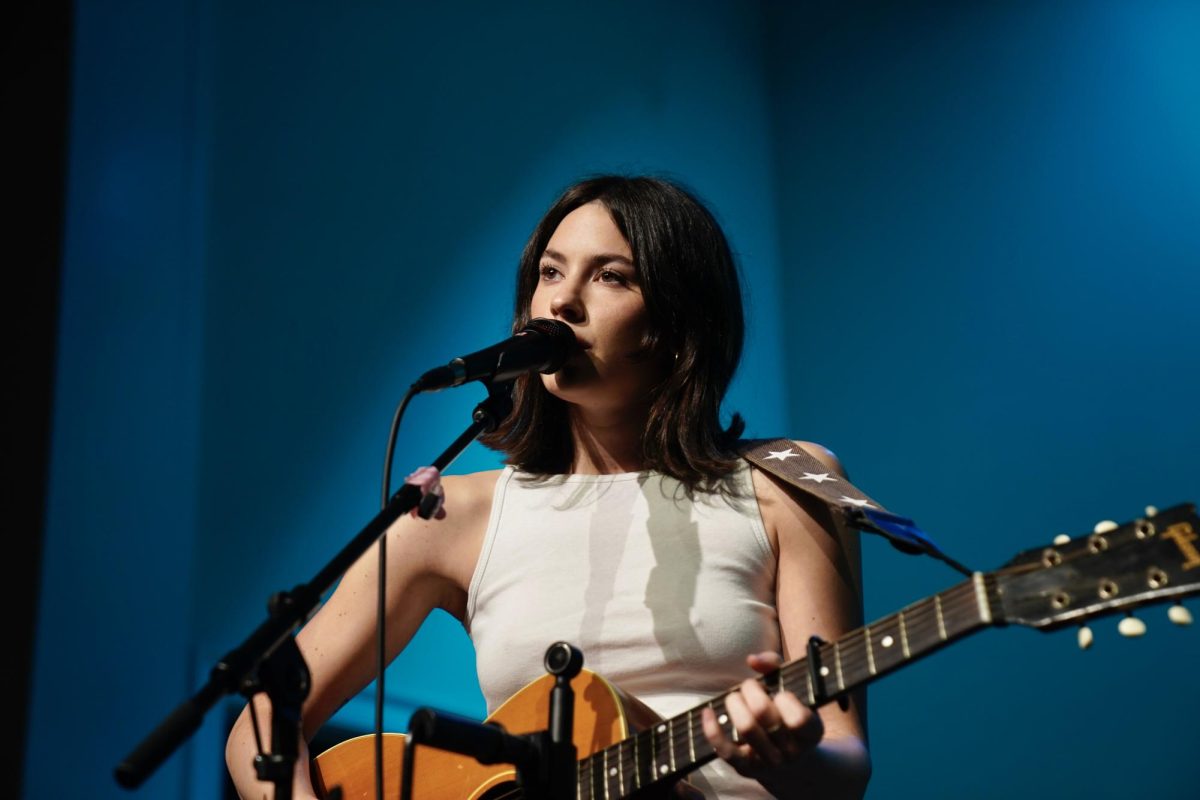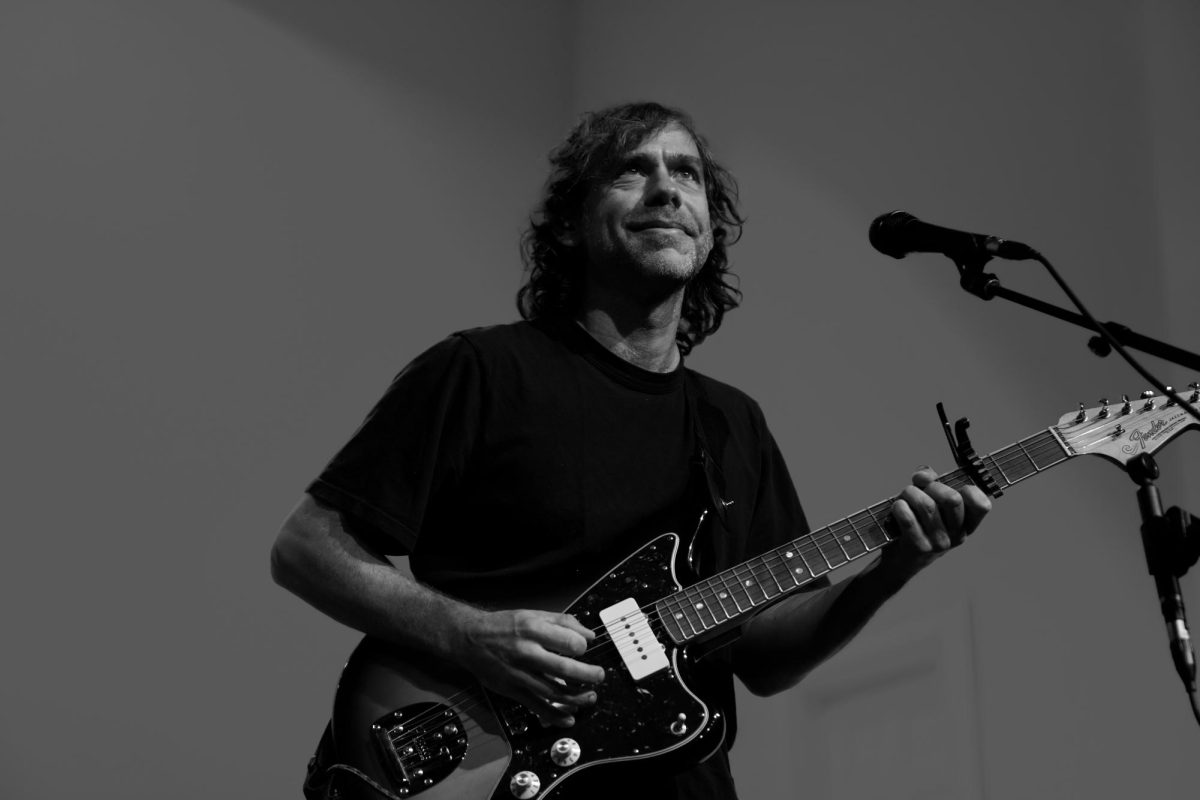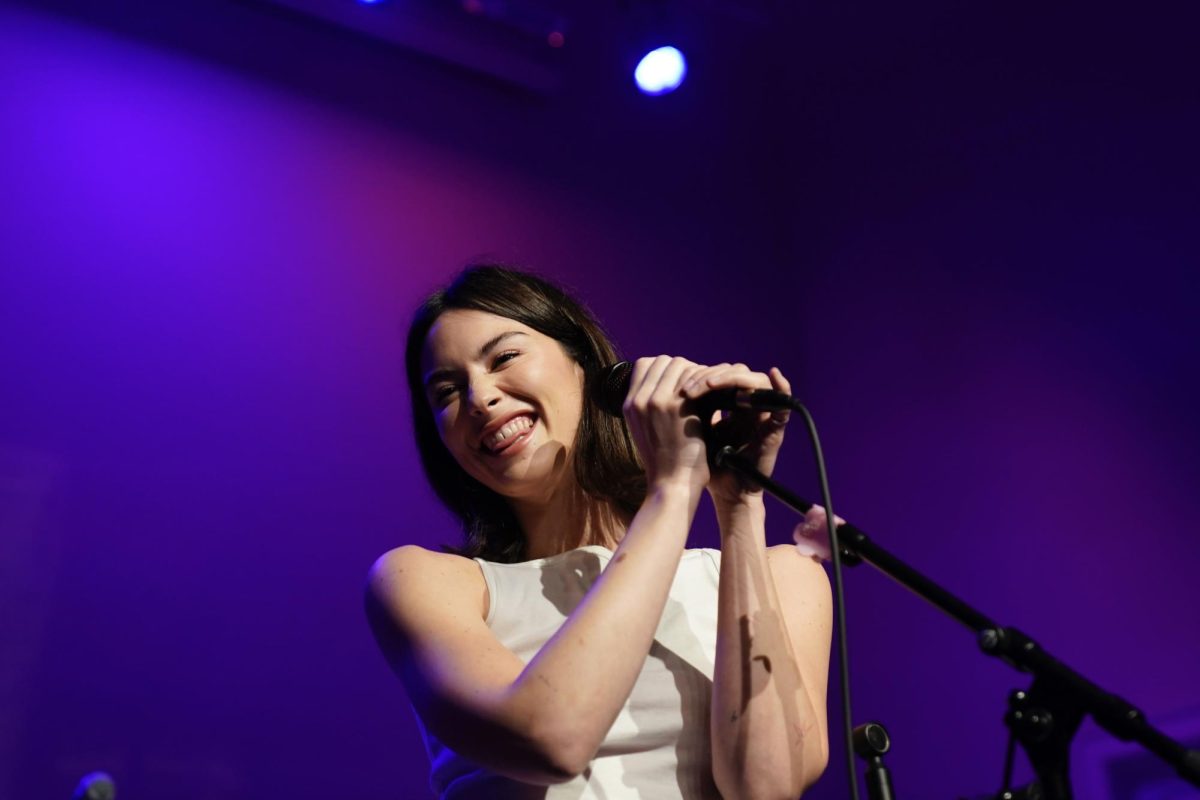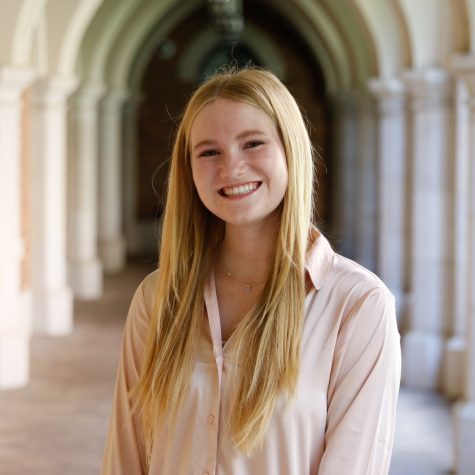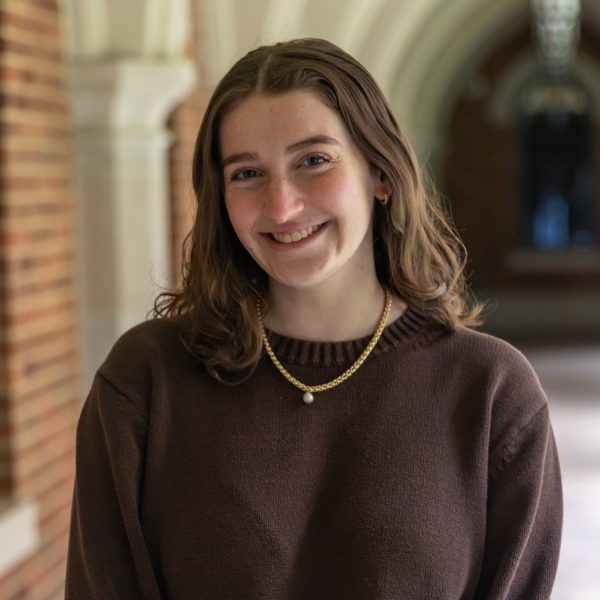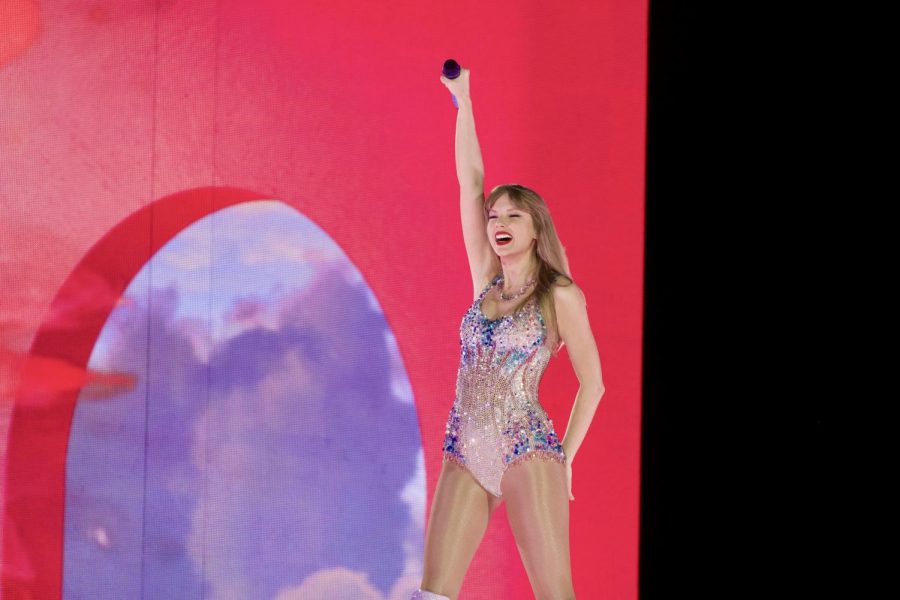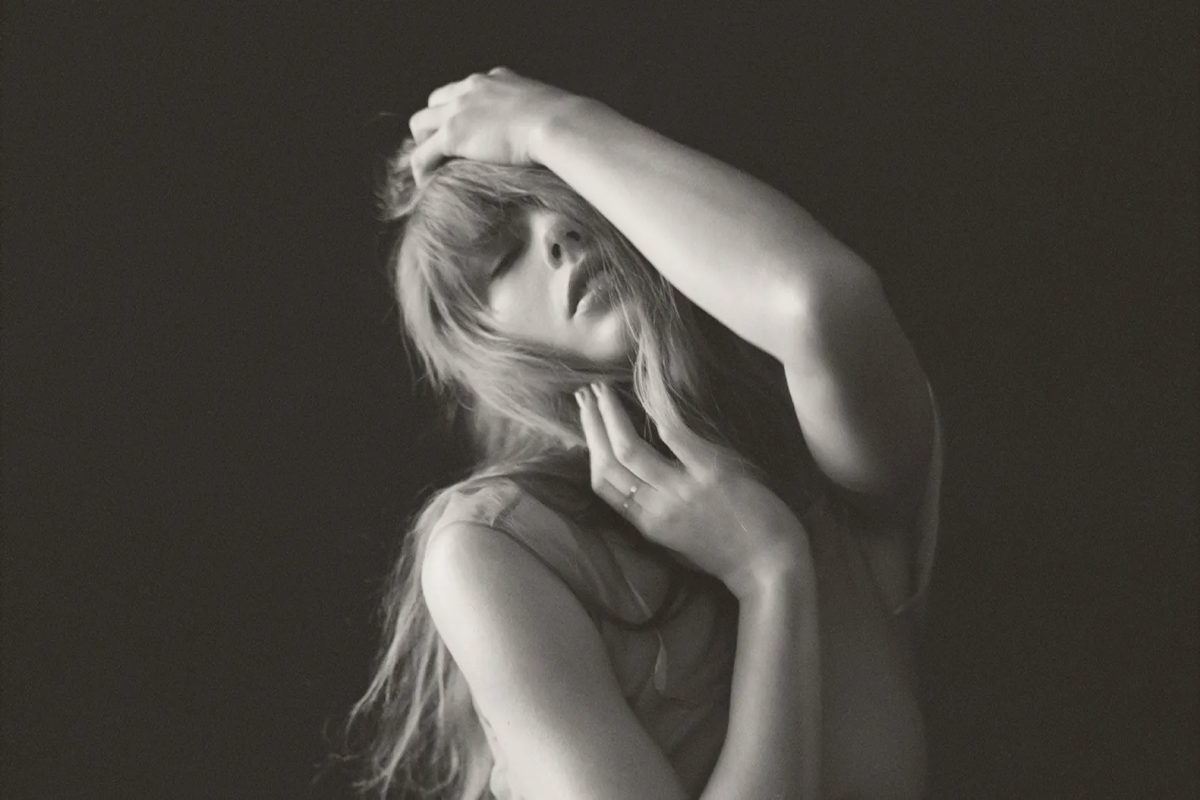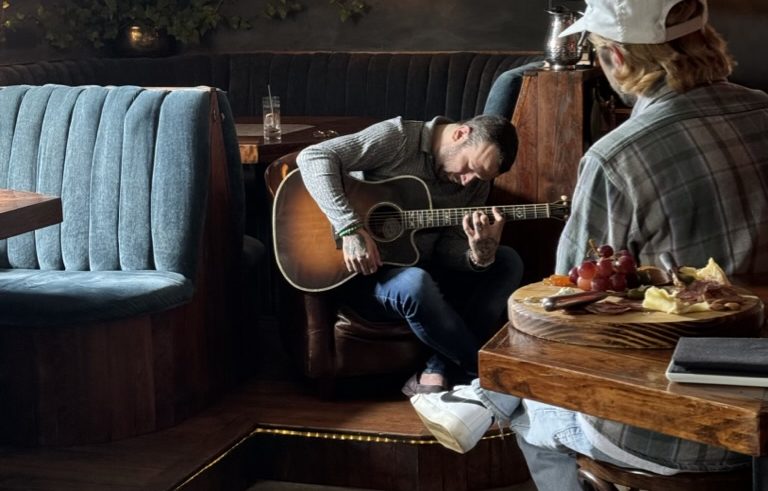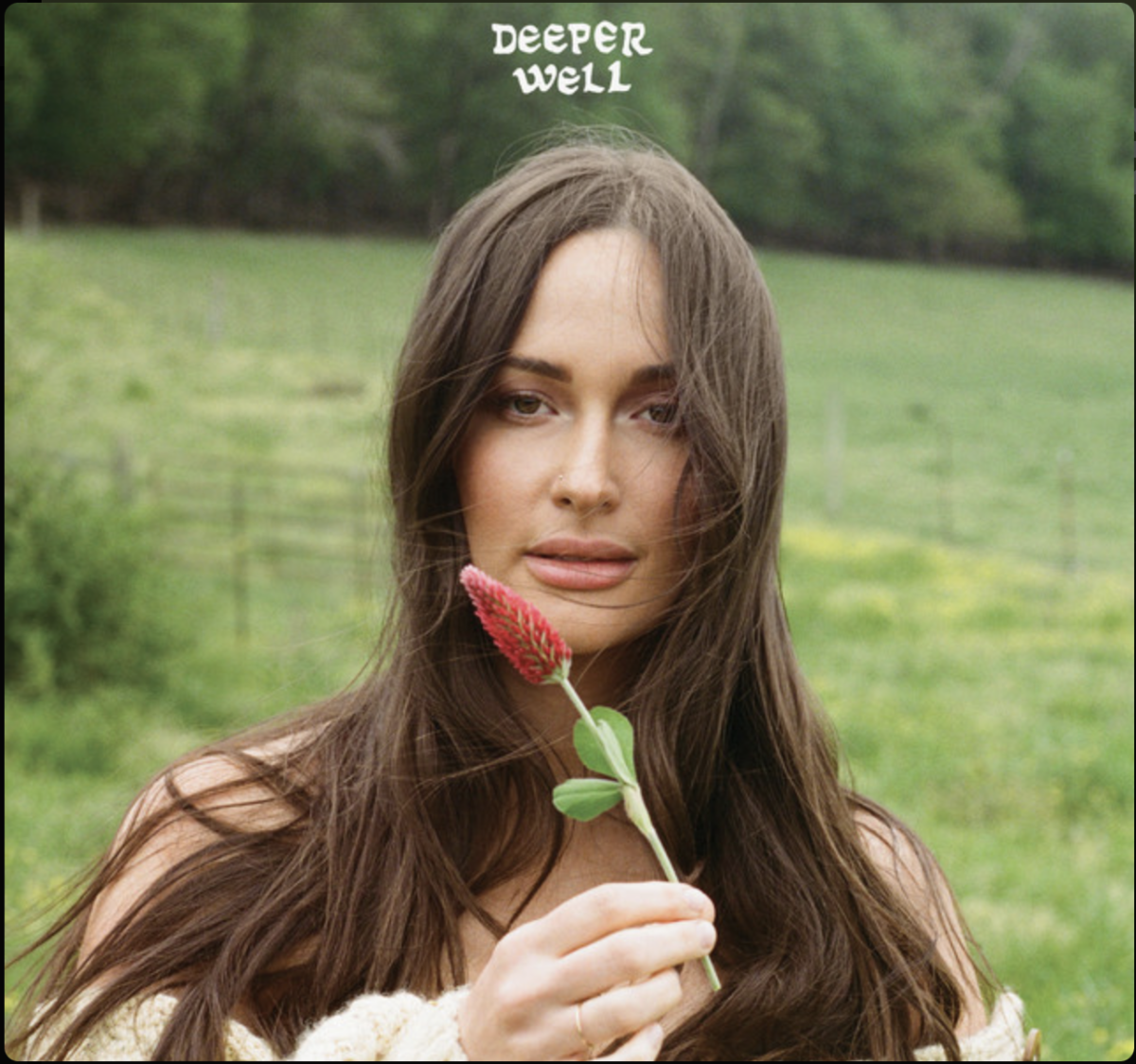“This song is called “I knew it, I know you, I called it,” and I hope you like it,” Gracie Abrams said. “No one has heard it before — even my sweet, sweet label — you guys beat them to it.”
From unreleased songs to stripped-back renditions of some of her biggest hits, Gracie Abrams and Aaron Dessner brought a heavenly performance to Riverside Revival on Sept. 11. The venue, a 1950s converted church, was one of three selected for the “Good Riddance” Acoustic Shows. Nashville was lucky enough to have a stop on the short tour, along with New York and Los Angeles, where the shows were hosted in similarly intimate venues. The tour as a whole is a testament to Abrams and Dessner’s artistic collaboration, as Dessner has been a prominent producer for Abrams’ debut album “Good Riddance” and her EP “This Is What It Feels Like.” The Nashville stop itself is a testament to the musician’s respect for a city that revolves around musical production and relishes in nurturing artists; both Abrams and Dessner alluded to feeling at home in Nashville.
The musicians wanted to play their songs the way they had initially written them, and after seeing Abrams’ performance at the Eras Tour earlier this year, I can attest that the songs sound just as remarkable in a small church as in a large stadium. Her music is distinct in that way: It has a quiet confessional quality that makes listening feel personal and almost private, while also having ascending choruses and memorable lyrics.
The crowd quieted as Abrams and Dessner walked onto the stage and began playing “Best,” a brutally honest admittance of not being the best person in a relationship. Next was “I know it won’t work,” which builds in speed and intensity and centers around feeling torn between leaving someone and wanting them back. Hearing these songs — both deep-cutting and self-loathing — played acoustically with Dessner and Abrams passing the only setlist back and forth was cathartic. Given that they wrote the songs together, it was a special moment to see them smiling and playing the songs together, likely reminiscing on the art they created and how they’ve grown since.
As the night went on, Abrams and Dessner continued to recount their process of creating music together. While introducing “Camden,” they recalled how Abrams drove to Dessner’s Long Pond Studio from Camden, Maine, and then they created the song together, naming it after the town. They likened the song, which centers around feeling like an open wound, to Taylor Swift’s “Closure,” which is about finding a personal sense of peace. Swift’s “Evermore” was primarily recorded at Long Pond, around the same time as “Camden,” making it interesting to think about how Swift, Dessner and Abrams may have been creatively inspiring each other before all performing together years later at the Eras Tour.
After “Camden,” Abrams transitioned to play piano for “Two People” from her deluxe album, while Dessner stayed on the acoustic guitar. The song focuses on the disorienting feeling of knowing everything about someone while simultaneously not speaking to that person anymore. A bare song in terms of production, it was well-suited to the space, as the pair filled the room with the soft piano, acoustic chords and Abrams’ humming.
Moments later, Abrams and Dessner announced that they would be debuting an unreleased song, “I knew it, I know you, I called it,” that they had written two weeks before with Abrams’ friend Audrey Hobert. While Abrams noted that they had been best friends for years, this song was the first time her and Hobert had thought to write together. The song, distinct from Abrams’ typical whispered ballads, featured her voice rising higher and hitting longer notes. She sang about not apologizing for changing and continuing to live while someone else stayed behind, and midway through the song, there was a sudden shift. The notes began to fall and she repeated the word “down” over and over. The song was different from her other music with an expanded vocal range, making me excited for what’s to come from Abrams and Dessner.
It was evident that Abrams and Dessner were at home at the venue, interacting with the crowd and thanking the group for a welcoming space to share new music. This audience-artist chemistry continued as Abrams and Dessner went on to play favorites like “Where do we go now?” and “I should hate you.” Abrams ran around to interact with every side of the stage as the crowd, in their matching bows, friendship bracelets and flowy skirts, sang along to every word.
Abrams and Dessner ended the night with “Right Now,” a song about being on tour and learning what it means to come of age while being far from home. The last song on “Good Riddance,” was a fitting if haunting end to the show. While undeniably melancholy, the song mentions leaving a past life on the ground and ultimately feeling more alive because of it. The song ends with the repeating phrase: “I feel like myself right now,” filling the space of the venue and perfectly ending the show. Abrams mentioned feeling that she’s grown with many of her listeners, making this quiet, stripped-back moment about coming of age even more special.
The night as a whole showcased the beauty that can come from creative collaboration, and how the lyrics and meaning behind songs are more important than any bells or whistles. The evening felt like a moment shared between friends, where we were lucky enough to witness a small part of Abrams and Dessner’s process of creating music.

